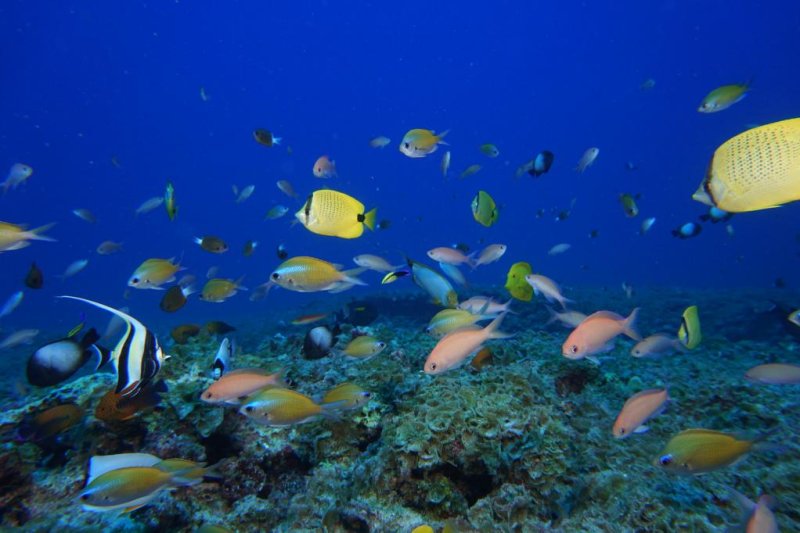Research suggests environmental stress negatively affects genetic diversity among fish before it affects species diversity. Photo by Andrew Gray/NOAA
Feb. 10 (UPI) -- For the first time, scientists have published a world map of fish genetic diversity.
Previous studies suggest the genetic diversity in an ecosystem declines more quickly in response to environmental stress than biodiversity, or the diversity of species. But until now, little was known about the genetic diversity of the world's fish populations.
By mapping genetic diversity of marine and freshwater fish, researchers can gain new insight into ways environmental stressors, like warming temperatures and ocean acidification, are affecting vulnerable populations.
For the study, biologists surveyed more than 50,000 DNA sequences collected from 3,815 marine fish species and 1,611 species of freshwater fish. Using the data, researchers estimated the amount of genetic diversity among fish living in sections of water measuring 77 square miles.
The highest levels of genetic diversity were measured among marine fish populations in the western Pacific Ocean, the northern Indian Ocean and the Caribbean. Among freshwater fish, species living in South America enjoy the highest levels of genetic diversity. Genetic diversity was comparatively low among freshwater fish in Europe.
In the ocean, scientists found a link between temperature and genetic diversity. Warmer waters tend to host greater amounts of genetic diversity. In freshwater ecosystems, scientists found a link between high levels of genetic diversity and complex habitats.
According to the authors of the new study -- which was published Monday in the journal Nature Communications -- conservation efforts should focus on protecting genetic diversity, as well as species diversity.
"The more diverse a population's gene pool is, the higher the potential for adaptation to environmental changes," study co-author Loïc Pellissier, professor at ETH Zurich's Institute of Terrestrial Ecosystems, said in a news release.
Previous studies have shown that human impacts are causing levels of genetic diversity to decline among fish and insect populations all over the world.
"If we want to protect our biodiversity, we also have to monitor the genetic diversity of populations," Pellissier said. "This is the only way to ensure that the pool of varied genetic material is large enough to enable the survival of species under changing environmental conditions."















